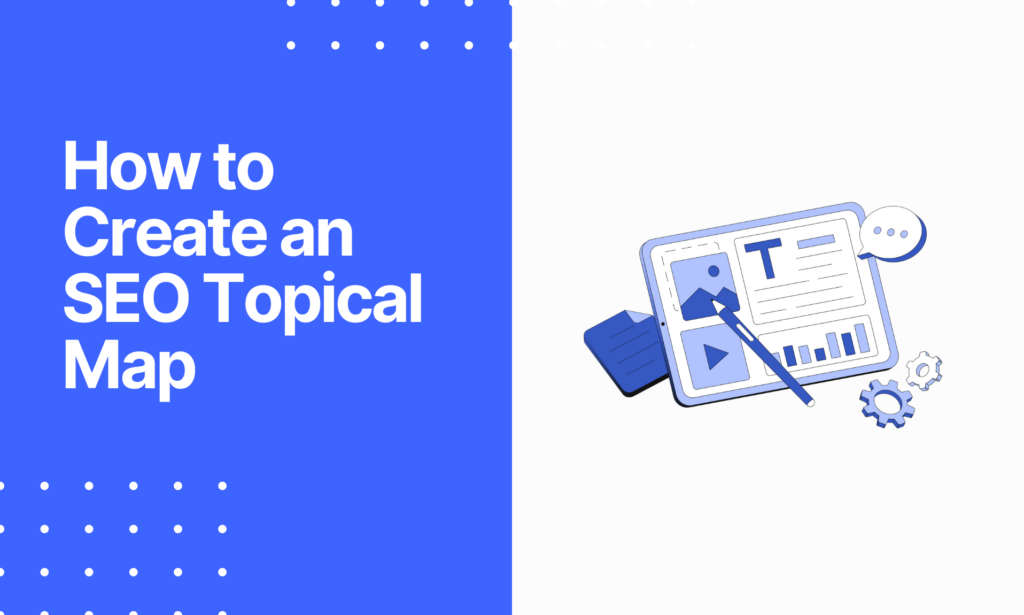Search engine optimization (SEO) is crucial for online visibility, but its cost can be a puzzle for businesses aiming to enhance their digital footprint.
SEO is multifaceted, with various models, factors, and industry standards influencing the investment required. Understanding the nuances of SEO pricing is essential for businesses striving to make informed and strategic decisions.
In this article, I’ll break down the key factors that influence SEO pricing, ranging from project scope and industry competition to agency expertise.
I’ll also discuss the different pricing models, such as hourly rates, monthly retainers, and project-based fees, to help you choose the option that best fits your budget and SEO goals.
How Much Does SEO Cost?
![How Much Does SEO Actually Cost? [Breakdown] 1 How Much Does SEO Cost](https://phillipstemann.com/wp-content/uploads/2023/12/How-Much-Does-SEO-Cost-scaled.jpg)
There’s no one-size-fits-all answer to how much SEO services cost, as it depends on various aspects unique to your business.
Monthly retainers, for example, which typically range from $500 to $1,500, provide ongoing month-to-month support, making them suitable for businesses requiring continuous optimization.
Hourly rates, commonly priced between $75 and $100, offer flexibility for sporadic or short-term SEO needs.
Meanwhile, project-based fees, ideal for specific, well-defined objectives, fall between $2,500 to $5,000.
According to surveys, roughly 59% of freelance businesses prefer the reliability of monthly retainers for some or all of their services. Additionally, more than half of businesses stick to a single pricing model—be it hourly, retainer, or per-project.
When it comes to hourly rates, 90% of SEOs charge $150 or less per hour, with only 4.1% commanding an hourly rate of over $200. This suggests that a significant majority are aiming to offer competitive pricing for their hourly services.
Geography also plays a role in SEO pricing dynamics. SEOs based in India, Central America, and South America tend to charge the least, while SEOs located in North America, Europe, and other economically developed regions often command higher rates.
Join 900+ to receive a weekly SEO video from my YouTube channel, which I’ll share, and an actionable SEO tip every week.
What Affects the Cost of SEO Services?
When it comes to figuring out how much SEO will cost you, several factors come into play.
Scope of Services
SEO is like a toolbox with various functions—keyword research, content creation, link building, and technical optimizations. The more tools in use, the higher the cost.
If you’re aiming for a holistic approach that covers everything from optimizing on-page content to building high-quality backlinks, you’re looking at a higher investment.
The breadth and depth of services directly impact the investment required to enhance your online presence.
Business Goals
![How Much Does SEO Actually Cost? [Breakdown] 2 Business Goals](https://phillipstemann.com/wp-content/uploads/2023/12/Business-Goals.jpg)
Your business goals act as the compass guiding your SEO strategy.
If your objectives involve broad market reach, high visibility for competitive keywords, or ambitious growth targets, your SEO campaign becomes more intricate.
Achieving these goals often requires a tailored approach, incorporating advanced tactics and ongoing efforts. As your goals become more challenging, the complexity of the SEO strategy increases, influencing the overall cost.
Competition in Your Industry
SEO operates in an environment where competition for online visibility is fierce.
In highly competitive sectors, achieving top rankings and maintaining visibility demands continuous and robust SEO efforts.
This heightened competition translates to a need for more extensive strategies, content creation, and ongoing optimization—all contributing to increased costs. The more contenders you have, the harder you need to push to stay ahead.
Geographic Targeting
Where you aim to make an impact—whether local, national, or global—affects the strategies employed in SEO and, subsequently, its costs.
Local SEO, targeting a specific geographic area, may involve strategies like local keyword optimization and Google My Business management. These efforts often come with a more budget-friendly price tag compared to global campaigns.
Aiming for a global audience often involves broader strategies, increased content production, and a more substantial investment in outreach efforts, which contribute to the overall cost.
Experience and Expertise
![How Much Does SEO Actually Cost? [Breakdown] 3 Experience and Expertise](https://phillipstemann.com/wp-content/uploads/2023/12/Experience-and-Expertise-scaled.jpg)
Seasoned experts bring a wealth of knowledge, proven strategies, and a track record of successful campaigns. While their services may come with a higher price tag, the investment often pays off in terms of results.
Size of Your Business
Larger enterprises typically have more extensive needs, requiring a comprehensive and tailored SEO strategy.
The scale of operations, diverse products or services, and a potentially larger target audience all contribute to the complexity of the SEO campaign. This complexity often translates to increased costs as the strategies need to align with the size and goals of the business.
Smaller businesses, on the other hand, may benefit from more streamlined SEO approaches. Their narrower scope allows for a focused strategy that can be equally effective within a more limited budget.
How Do SEO Companies Determine Pricing?
Here’s a breakdown of how SEO companies decide on pricing, taking into account various crucial elements:
Current Search Presence
Evaluating your current online standing is akin to inspecting the foundation of your SEO strategy.
If your website is well-optimized, the required effort might be less, positively impacting the cost.
Conversely, a site in need of extensive improvements may incur higher expenses due to increased workload.
Campaign Goals
Clearly defined goals steer an effective SEO campaign. Whether it’s boosting traffic, enhancing keyword rankings, or increasing conversions, each objective shapes tactics, directly impacting the overall cost.
Average Revenue Per Sale
When companies offer SEO services, they consider the client’s average revenue per sale to set their prices.
If a business tends to make more money from each sale, the SEO company might charge more because the potential for increased profits is higher.
On the flip side, if a business makes less money per sale, the SEO company might adjust its prices to match what the business can afford while still helping it make more money overall.
Close Rate of Leads to Sales
If your business has a high close rate—meaning a lot of leads turn into actual sales—it indicates an efficient sales process. This allows for a more targeted SEO strategy.
On the other hand, if your close rate is lower, it may require a more comprehensive approach. Such a situation could influence pricing to accommodate additional efforts needed to enhance conversion rates.
Speed of Desired Results
Urgency can impact pricing because accelerating results often require additional resources.
If you’re in a hurry to see outcomes, it might necessitate a more intensive and focused effort, potentially leading to higher costs.
A more gradual approach might spread costs over a longer timeline, aligning with a more extended strategy.
Budget Allocation
![How Much Does SEO Actually Cost? [Breakdown] 4 Budget Allocation](https://phillipstemann.com/wp-content/uploads/2023/12/Budget-Allocation--scaled.jpg)
When you hire an SEO company, they examine how your current marketing budget is distributed.
They adjust their pricing based on the allocated percentage, ensuring a well-balanced strategy that aligns with your business priorities while optimizing costs.
Level of Customization
A tailored strategy aligns with specific business needs but may incur additional costs.
Customization ensures SEO efforts directly address unique challenges, potentially resulting in a more effective and efficient campaign, justifying the associated investment.
Types of SEO Pricing Models: Pros and Cons
SEO services come with various pricing models, each tailored to different business needs. Understanding these models can help you choose the one that aligns with your goals and budget.
Hourly Consulting
Hourly consulting in SEO is a pricing model designed to provide flexibility for clients who have specific, short-term needs.
SEO agencies or consultants charge based on the hours dedicated to tasks such as keyword research, on-page optimization, link building, and analytics reporting.
This model caters to businesses looking for immediate assistance without committing to a long-term arrangement.
Pros
- Ideal for specific, short-term assistance or advice
- Clear visibility into how your budget is allocated, as you pay for the actual hours worked
- Gain insights into SEO strategies and best practices through direct interactions with professionals during consulting hours
Cons
- May not be cost-effective for long-term projects
Project-Based Pricing
For well-defined projects with clear objectives, SEO agencies may propose a project-based pricing model. This approach involves a fixed fee for the entire project, providing transparency and predictability.
Pros
- Simplifies billing and invoicing processes as you deal with a single, predetermined cost for the entire project
- Projects often come with specific timelines, allowing you to plan other business activities around the SEO initiative
Cons
- Less adaptable to changes in scope or requirements once the project has started
- Fixed cost may be higher than necessary if the scope or complexity of the project is overestimated
Monthly Retainer
A common and widely adopted model in the SEO industry is the monthly retainer. Under this arrangement, businesses pay a fixed monthly fee for a set range of services. This model allows for ongoing collaboration, constant monitoring, and adjustment of SEO strategies as needed.
Monthly retainers are suitable for businesses with consistent, long-term SEO requirements.
Pros
- Allows for flexibility in adjusting SEO strategies as your business evolves or encounters new challenges
- Enables comprehensive, long-term SEO strategies with consistent efforts over time
- Optimizes resource allocation as the SEO provider can plan and allocate resources efficiently over the retainer period
Cons
- Requires a continuous financial commitment, which may be challenging for businesses with fluctuating budgets
- May not be cost-effective for businesses with sporadic or short-term SEO requirements
Performance-Based Pricing
In performance-based pricing, SEO agencies tie their compensation directly to the results they achieve. This model often involves setting targets related to key performance indicators (KPIs) such as increased organic traffic, higher search engine rankings, or improved conversion rates.
Pros
- Aligns the interests of your business and the SEO provider as compensation is directly tied to achieved results
- Reduces your financial risk, as payment is contingent on the successful delivery of agreed-upon KPIs
- Establishes clear accountability, with the SEO provider committed to delivering tangible, measurable results
Cons
- Monthly costs can be unpredictable, making it challenging to plan and budget consistently
- May not be suitable for businesses with complex or long-term goals that are challenging to measure in the short term
Package Pricing
SEO agencies may offer pre-defined packages that cater to different business needs.
These packages typically include a set combination of services such as keyword research, on-page optimization, link building, and analytics reporting.
Package pricing provides a clear outline of what services are included for a specific cost, simplifying decision-making for businesses.
Pros
- Clearly outlines the services included in the package, reducing ambiguity about what your business will receive
- Sets clear expectations with pre-defined deliverables, ensuring both you and the SEO provider have a shared understanding of the scope
- Saves time in negotiations and customization as you can quickly choose a package that aligns with your immediate needs
Cons
- Less room for customization as packages are pre-defined, potentially not addressing unique or specific business requirements
Which SEO Pricing Model Is Best?
![How Much Does SEO Actually Cost? [Breakdown] 5 Which SEO Pricing Model Is Best](https://phillipstemann.com/wp-content/uploads/2023/12/Which-SEO-Pricing-Model-Is-Best-scaled.jpg)
From a customer’s point of view, the performance-based pricing model is often considered an appealing option. This model ties the cost of SEO services directly to the results achieved, aligning the interests of the SEO provider with the success of the client’s business.
Businesses only pay for measurable outcomes, such as improved rankings, increased organic traffic, or other predefined metrics. This approach is attractive as it offers a tangible return on investment and mitigates the risk of spending on services without guaranteed results.
However, the suitability of this model depends on the nature of your business goals, the industry, and the specific KPIs you prioritize. Performance-based SEOs aren’t universally applicable, and businesses should carefully evaluate their individual needs and circumstances.
For example, performance-based pricing may not be the most optimal choice in scenarios where the desired outcomes are challenging to quantify or take a considerable amount of time to materialize.
Suppose your primary SEO goals are focused on long-term brand building, establishing thought leadership, or nurturing relationships within a niche market. In such cases, the results might not manifest immediately or in a straightforward numerical form.
Additionally, industries with complex sales cycles, high competition, or those heavily reliant on seasonal trends might find it challenging to align a pay-for-performance model with their specific business dynamics.
For businesses that require ongoing, consistent SEO efforts rather than immediate, measurable results, alternative models such as monthly retainers or hourly rates could offer a more flexible and sustainable approach.
Should You Increase Your SEO Spending Budget Over Time?
Yes, it’s often advisable to incrementally increase your SEO spending budget over time.
A commonly recommended practice is to allocate a percentage of your overall marketing budget to SEO and adjust it as your business grows.
While the exact figure can vary based on industry, business size, and objectives, a common guideline is to allocate 10% to 15% of your overall marketing budget to SEO, with a minimum of 5%.
Two basic factors influence your SEO budget:
- Revenue: As your business grows and generates more income, dedicating a proportional amount to SEO becomes essential for sustained growth.
- Competition: If you operate in a highly competitive market, allocating a larger budget may be necessary to outpace competitors.
As your business evolves, periodically reassessing and adjusting your SEO budget ensures that it remains in sync with your growth trajectory and industry dynamics.
Balancing investment with a strategic approach is key to achieving meaningful and sustainable results in the ever-evolving digital landscape.
Conclusion
From monthly retainers to performance-based models, businesses have options to consider. But remember: more money doesn’t automatically mean better results.
While it’s vital to allocate a reasonable budget, success in SEO is about strategy and execution, not just spending big. Strategic decisions, continuous adaptation, and a focus on relevance are the real drivers of SEO success.
So, find that sweet spot in your budget, invest thoughtfully, and let your SEO strategy evolve as your business does.


